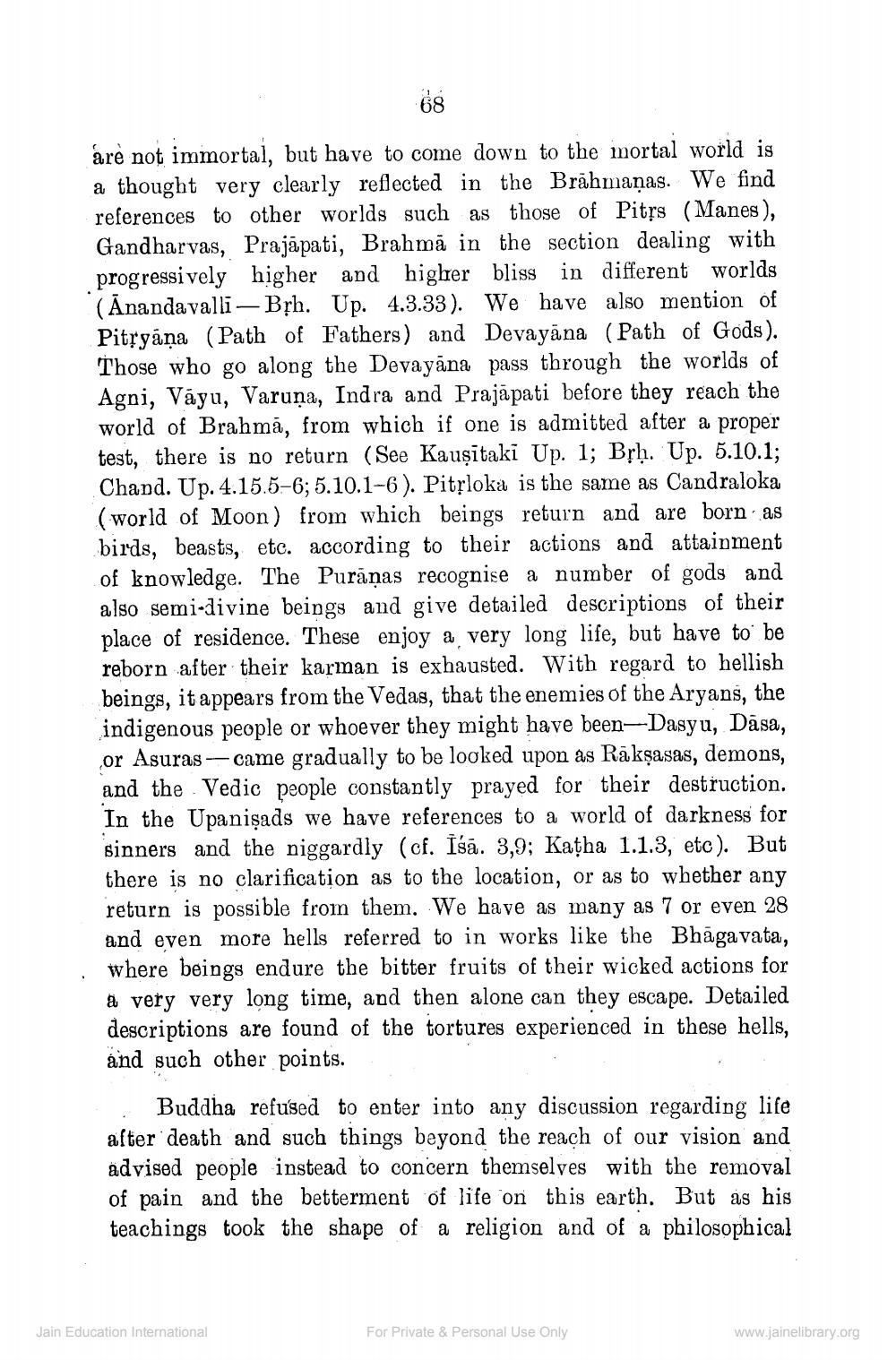________________
68
are not immortal, but have to come down to the mortal world is a thought very clearly reflected in the Brāhmaṇas. We find references to other worlds such as those of Pits (Manes), Gandharvas, Prajāpati, Brahmã in the section dealing with progressively higher and higher bliss in different worlds (Ananda valli — Bșh. Up. 4.3.33). We have also mention of Pitryana (Path of Fathers) and Devayāna (Path of Gods). Those who go along the Devayāna pass through the worlds of Agni, Váyu, Varuņa, Indra and Prajapati before they reach the world of Brahmă, from which if one is admitted after a proper test, there is no return (See Kausitaki Up. 1; Bșh. Up. 5.10.1; Chand. Up.4.15.5-6; 5.10.1-6). Pitšloka is the same as Candraloka (world of Moon) from which beings return and are born as birds, beasts, etc. according to their actions and attainment of knowledge. The Purāņas recognise a number of gods and also semi-divine beings and give detailed descriptions of their place of residence. These enjoy a very long life, but have to be reborn after their karman is exhausted. With regard to hellish beings, it appears from the Vedas, that the enemies of the Aryans, the indigenous people or whoever they might have been-Dasyu, Dāsa, or Asuras - came gradually to be looked upon as Rākşasas, demons, and the Vedic people constantly prayed for their destruction. In the Upanişads we have references to a world of darkness for sinners and the niggardly (cf. Išā. 3,9; Katha 1.1.3, etc). But there is no clarification as to the location, or as to whether any return is possible from them. We have as many as 7 or even 28 and even more hells referred to in works like the Bhāgavata, where beings endure the bitter fruits of their wicked actions for å very very long time, and then alone can they escape. Detailed descriptions are found of the tortures experienced in these hells, and such other points.
Buddha refused to enter into any discussion regarding life after death and such things beyond the reach of our vision and advised people instead to concern themselves with the removal of pain and the betterment of life on this earth. But as his teachings took the shape of a religion and of a philosophical
Jain Education International
For Private & Personal Use Only
www.jainelibrary.org




